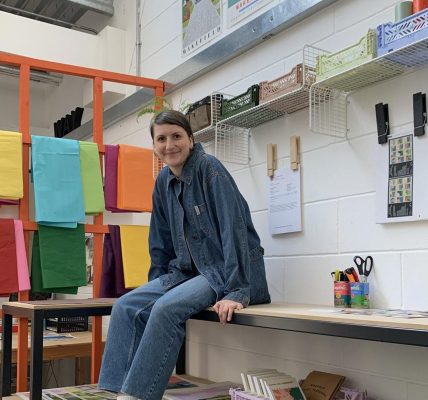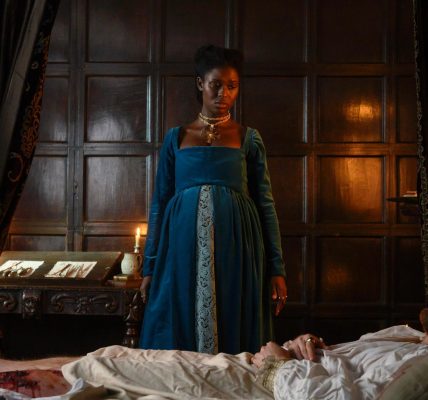How Tom Jones found solace in music after the death of his wife and made new album Surrounded by Time
How Tom Jones found solace in music after the death of his wife and made new album Surrounded by Time
Sir Tom Jones is on a musical hot streak. Alex Green talks to the Welsh pop superstar about his new record and how he found solace in music following the death of his wife.
Sir Tom Jones has been compared to Johnny Cash recently. But what could the late, grizzled country and western icon, dubbed the Man in Black, have in common with Sir Tom – one of Wales’ finest pop exports and a polished former heartthrob. The answer? Both artists carved out successful late careers, transforming into elder statesmen in the process.
Earlier this year, Jones, who recently celebrated his 81st birthday, became the oldest man to top the UK album chart. Surrounded by Time, his 41st studio album, also gave him his fourth number one – and his first since 1999’s Reload.
“As soon as you are born, you are on the clock – and that clock starts ticking,” he reflects down the phone from his London flat. “When I used to work in a paper mill on a 12-hour shift, I used to think, ‘I’ll be glad to get this 12 hours over with’. But then afterwards, you realise that’s 12 hours coming off your life. It is a strange thing once you start to think about how much time we have.
“How old am I going to be? Well, I have got to 81 already, so… And I have had a great time getting here. It’s all to do with time.”
Born in South Wales in 1940 to a traditional coal-mining family, Jones began singing at an early age in church and in the school choir. By 1963, he was playing regularly with his own group in the boisterous atmosphere of working men’s clubs.
In 1964 he was talent spotted and signed his first record contract that year, and his soulful voice and energetic performances quickly saw him become an international name.
Hits such as It’s Not Unusual, What’s New Pussycat?, Delilah and Green Green Grass of Home helped him conquer the world, with female fans gaining a reputation for throwing their underwear at him.
TV shows pulled in massive audiences and he became a regular fixture at Las Vegas. By 1971 he had sold more than 30 million records. Career revivals in the late Eighties with his cover of Prince’s Kiss and his Reload album of covers in 1999 have kept his name alive for subsequent generations.
His latest record, his fourth album with producer Ethan Johns, is full of ruminations on ageing, loss and family. It features 12 covers – although Jones is not fond of the word – ranging from the psychedelic (The Windmills of Your Mind) to the epic (Bob Dylan’s One More Cup of Coffee) and the heartbreakingly personal I Won’t Crumble With You If You Fall, a tribute to his late wife Linda.
The presence of his wife of 59 years, who died of cancer in April 2016 at the age of 75, hangs over the album. The couple met at high school in Pontypridd, just north of Cardiff, and married in March 1957, both aged 16, after Linda fell pregnant with their son Mark. To support them, the singer took jobs in construction and worked in a paper mill.
Somewhat surprisingly, Surrounded by Time is the first album Jones has recorded in Wales – at Monnow Valley Studio in Monmouth. “When I was driving up to the front of the studio, they had the Welsh dragon flying and I thought, ‘This is an omen, this feels great,’” he exclaims. The record begins with the sombre I Won’t Crumble With You If You Fall in memory of his wife.
“I wanted to put it first,” he says. “This album, everything happens after that. This happened and I fought through it. And these songs are representing that.”
Encouraged by producer Johns, Jones goes to surprisingly experimental places, including some swirling psychedelic rock. Is the singer making up for missing out on the hippier side of the 60s? “My records, you see, in those days they were straight ahead,” he recalls. “We would go in there with a live band and that was it. I don’t think the songs I was doing would warrant a sitar.”
He chuckles at the thought. “What’s New Pussycat? was a big thumping Burt Bacharach tune with four grand pianos. I don’t know whether the sitar would have worked on that anyway…”
Jones’s marriage to Linda survived the trials and tribulations of fame, and until just a few years ago they lived together in Beverly Hills, but shortly after her death, he sold up and moved back to the UK. “The best way to deal with grief is to talk about it,” he says.
“When Linda died, it was shocking for me because I had known her all my life. She was always there. Even if she wasn’t there personally, she would be on the end of the phone. She was always there. And then she wasn’t.
“I didn’t think I would be able to sing any more, but I saw a counsellor and she said: ‘You have got to face it, now this is what happened, do you want to survive it or do you want to die with her?’ Linda said herself: ‘Don’t you fall with me, you have got to get on that stage and keep going.’”
At first, he was worried he would never be able to sing again, but he sought professional help. “It was my son who talked me into it – and my doctor,” he says. “He said you should go and see a counsellor because you can’t do it on your own.
“My son helped me a lot and Linda, God bless her, when she was still alive. Because myself and my son were in the room with her in the hospital for 10 days, she said: ‘You two have got to mentor one another now, you have got to hold one another up’. And that is what we have done.”
Linda is still with him – he keeps her ashes in a “little, beautiful box” in the bedroom of his flat in London.
He was eventually able to get back on stage – before the pandemic put paid to touring – and is heading out on tour later this summer, which includes a special sold-out performance at the Brudenell Social Club in Leeds, and Hull College Craven Park.
“It was very hard at the beginning,” he sighs. “I didn’t know if I could do the shows. Then I got on the stage and the audience lifted me up. Hampton Court was the first show I played after she died.
“The audience lifts you up and you think, ‘My God, this is the best place to be to get over this’ – rather than just lock yourself in a room. That doesn’t work. You have got to get on with life.
There is a lesson there for everybody.
“If you can get over that grief, whatever it is, if you can just see through it, time does heal. It’s an old saying, but it is true.”
The album Surrounded by Time is out now. For details about tour dates go to www.tomjones.com.










